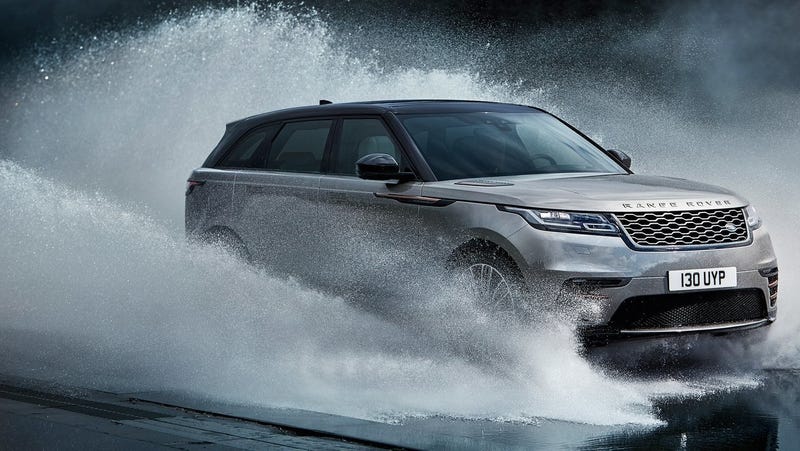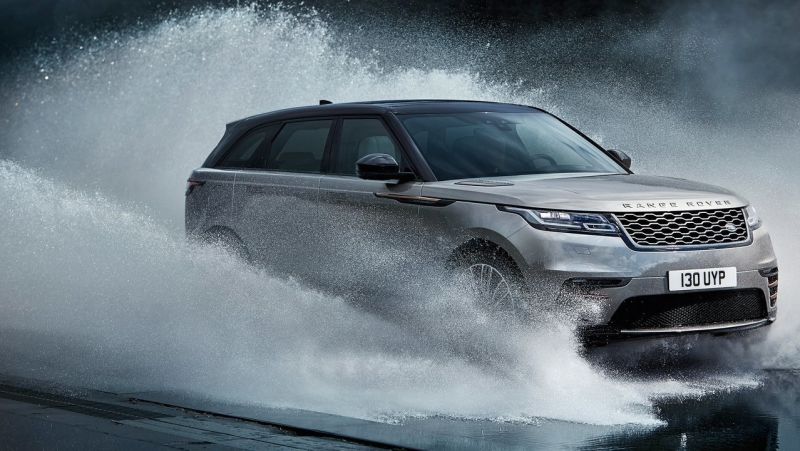
With Brexit threatening supply lines, China’s reversing growth, a lineup of old sedans, and a hefty price tag on new electric vehicle development, Tata Motors is reportedly looking to sell a bit of JaguarLand Rover.
Tata Group, the company that bought Jaguar Land Rover from Ford back in 2008,is looking to either turn JLR into a joint venture or sell a chunk of it, according to Bloomberg:
India’s biggest conglomerate is considering alternatives ranging from a minority stake sale to finding a venture partner that would jointly develop vehicles and lower costs, said the people, who asked not to be identified because the discussions are private. The company is holding early-stage talks with potential advisers, and the deliberations may not lead to any transaction, they said.
Just over a decade after purchasing the Jaguar and Land Rover brands, the business has turned from crown jewel to burden, culminating in the biggest corporate loss in Indian history just last month when Tata drastically slashed the value of the asset.
Jaguar Land Rover has been hit hard by slumping sales in China, the shift away from combustion and diesel engines, and the brand’s strong historic links to the U.K., where concern over a disruptive Brexit has weighed on demand and prompted some brands to move production.
But Tata isn’t very interested in ceding control of JLR to any other parties, according to Bloomberg’s sources, but it is open to anyone who wants to throw them some “fresh equity.” I find that very relatable.
Representatives form JLR declined to comment on Bloomberg’s story, but a Tata spokesperson told Bloomberg that “there is no truth to the rumors that Tata Motors is looking to divest its stake in JLR, and we would not like to comment further on any market speculation.”
Which, sure, considering that the Bloomberg story reads a bit like someone from Tata leaked this as a giant “FOR SALE – PIECES ONLY” sign on JLR.
Advertisement
JLR’s immediate problems involve diesels, which recently made up 90 percent of its European sales but are now in decline as the world’s governments pressure companies to pivot to alternative fuels. The company announced 4,500 layoffs back in December, most of which focused on UK employees. It also announced a $4 billion loss in the final quarter of 2018, all of which is rough, needless to say.
Speaking of the UK, though, there’s another immediate problem JLR has to deal with, as the ticking clock of Brexit comes down to the wire. A no-deal Brexit would be a massive headache to most automakers based in the UK, as it threatens the flow of supplies between the country and the European continent, raising costs for companies and consumers alike.
In China, JLR tried to position itself as a direct rival to BMW, as pointed out in the Bloomberg article by Aston Business School professor David Bailey, but its luxury vehicles failed to land with Chinese buyers, forcing the company to offer massive incentives which upset Chinese dealers.
Advertisement
While China is still the world’s largest car market, nationwide auto sales slipped into decline for the first time in 20 years last year, which is not a great trend for anybody still struggling to make a foothold.
It also doesn’t help that the Jaguar side of Jaguar Land Rover still has a lineup full of aging sedans, and while both of its crossovers—the E-Pace and F-Pace—have been a sales hit, F-Pace sales have also declined in recent months. On the Land Rover side, the Range Rover Coupe, an expensive project with a limited market even in the best of times, was cut before it could make it to production.
On top of all of these problems, JLR is trying to solve its diesel crisis with further development of an electric vehicle lineup that began with the Jaguar I-Pace. That costs a lot of money, too.
Advertisement
While news of Tata Group looking for friends with fat wallets isn’t exactly promising, it sounds like a reasonable pursuit given the current global market seems anything but friendly to British luxury automakers at the moment.
With any luck, a good deal between the EU and the UK will be worked out, or Brexit will be completely reversed in another vote, and JLR will get a little more time to reset itself in China and phase out its diesel offerings. But given how hellish things have been in politics the past few years, it’s probably wise to find some money just in case.















